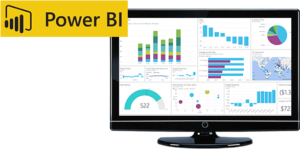A major Canadian oil & gas company reached out to Imaginet to rewrite some of the old infrastructure they currently had in place and pursue an Azure Data Factory migration. Imaginet had built their data warehouse 10 years ago, but changes in technology prompted the client to make changes to their existing data loading processes. We had previously used SQL Server Integration Services (SSIS) to build their data factory, however, migrating to Azure Data Factory had become the better option for their business needs, as they wanted to move from on-premises servers to cloud services in Microsoft Azure.
Our client had started to experience issues with their current on-premises SQL Server. The operating system had not been updated in 10 years and there were security requirements that were not supported by their current operating system. The amount of work to update the operating system and SQL Server was significant and moving the data warehouse and Analysis Services (SSAS) semantic data model to Microsoft Azure was preferred over the upgrading and ongoing management of that server. They desired a flexible solution with less management.
Imaginet’s Solution
Our client had several source databases for tracking how much oil the well was producing, downtime, accounting databases, and more. The existing SSIS processes were modernized by migrating the ETL processes to Azure Data Factory. While migrating to Azure Data Factory, we kept their existing on premises databases. The next phase of the effort is to move the data warehouse to Azure SQL and the SSAS semantic data model to Power BI, which the Finance department had already begun to use.
Why Our Solution Was Helpful
SSIS is outdated and lacks flexibility. By moving their ETL processes to Azure Data Factory our client could easily maintain the system they currently have. Once they have fully moved off their existing SQL Server, they will no longer need to manage security patches and system updates. Many operational support practices, including patching, backups, and availability will be no longer the responsibility of the IT department; instead, those features are included in the Microsoft Azure services they are using.
Data Factory allows for more agility when it comes to new requirements. If new data needs to be retrieved it is a much quicker process to get the new data in place and requires less work.
Additionally, Azure DevOps can be used to deploy these solutions. Code changes are easier to deploy with data factory. Because SSIS is older and outdated it is difficult to deploy SSIS packages in an automated way.
Advantages of Cloud Migrations
Cloud migrations possess several benefits. The cloud is a newer technology and therefore is more equipped to handle changing data needs. Below are a few highlighted advantages:
- Pay for what you need – There is no need to purchase a big server (like you would with on-premises). You have the option to pay for what you need at the time and can add more to account for any change in resources needed. The cost model is flexible and moves with your organization. With the on-premises model, the payment is made up front. If you were to underestimate what you need it’s expensive to add more. This issue doesn’t exist with a cloud-based approach.
- Migrating to the cloud provides the ability to automatically release and deploy code changes. Much of the manual work is removed, allowing you to devote time and resources more effectively and strategically.
- The cloud is a more modern solution and therefore has updated features. It can provide benefits that older solutions likely wouldn’t have.
- Managing patches and security updates are not needed for Azure resources, as compared to on-premises servers.
Conclusion
With the new Azure Data Factory, the client is better able to stay updated with security requirements and can capitalize on the benefits of having a flexible data solution. The elimination of manual updates has allowed them to devote their time more strategic efforts. With the cloud cost model, they have an improved ROI because it grows and adapts with their changing business needs.
Because of Imaginet’s existing relationship with the client we understood the system they had in place and their business needs. We were able to provide them with a comprehensive solution that will benefit their future organizational needs.
Our team has been working hard these last few months, and we are excited to share our success with you. Don’t forget to subscribe to our newsletter to stay updated on our most recent Microsoft 365 projects. Fill out the form at the bottom of the page if you think an Azure Data Factory migration might benefit your organization.
discover more
Creating Visualizations Using D3 May 9, 2024 Creating visualizations for applications can be overwhelming and difficult without using the correct tools. Recently, I faced a challenge where I needed to modernize a visualization from a legacy application that used a…
Idle Session Timeout: What it is and How it Affects Security & Productivity April 24, 2024 In today’s digital age, many organizations are now using cloud-based productivity suites such as Microsoft 365 to streamline their operations and enhance collaboration. While…
Adapting to Change: How to Do It and Why It’s Essential April 25, 2024 Some organizations are risk averse which often means they avoid change to reduce risk. This is a false economy, in my opinion. Sometimes, clients ask…
Let’s Build Something Amazing Together
From concept to handoff, we’d love to learn more about what you are working on.
Send us a message below or drop us a line at 1-800-989-6022.


